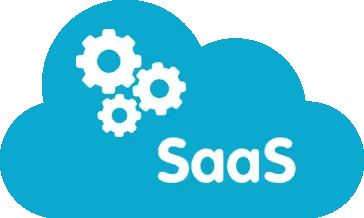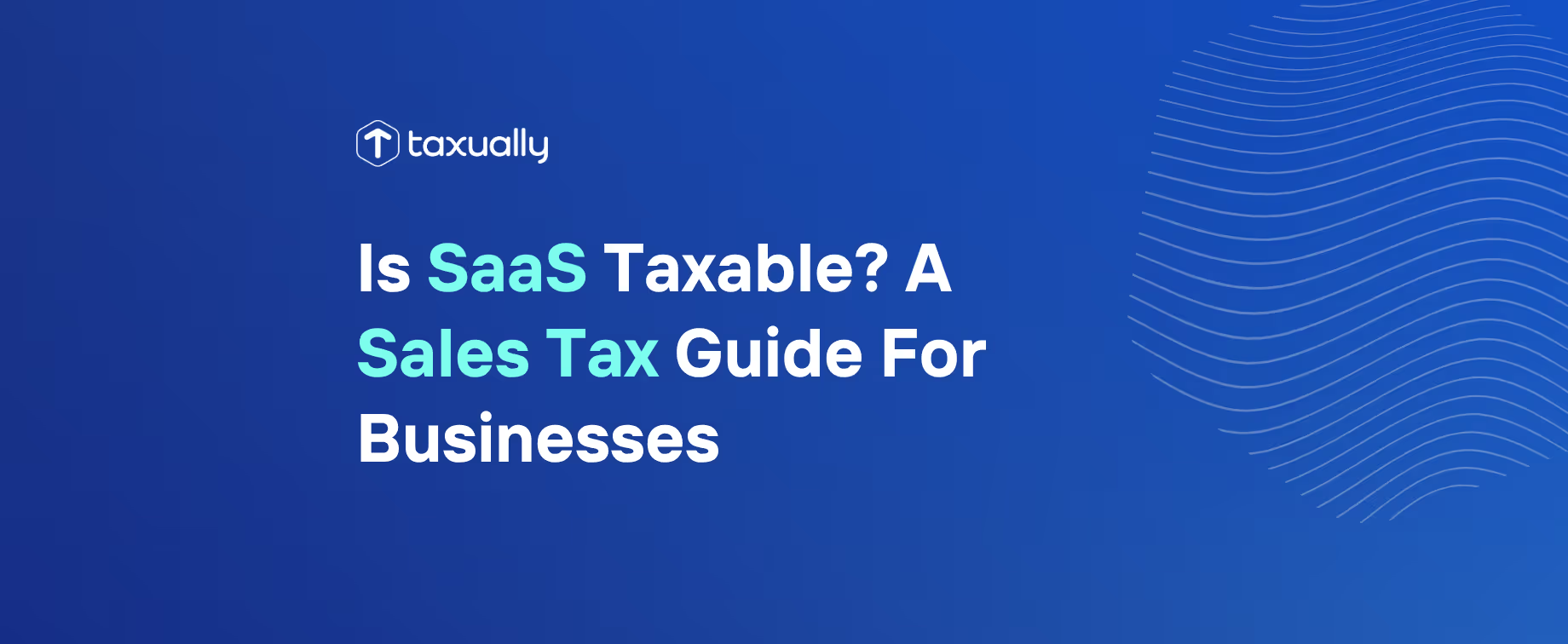Key takeaways
- SaaS tax rules vary by state: Some states fully tax SaaS, others partially, and many don’t tax it at all, making compliance a state-by-state challenge.
- Economic nexus is critical: Even without physical presence, SaaS companies may be required to collect sales tax if they exceed sales or transaction thresholds in a state.
- Automation and expert help are essential: Leveraging tax technology and professional advice can simplify compliance and reduce the risk of costly errors.
In the ever-evolving world of technology and digital commerce, Software as a Service (SaaS) businesses face a myriad of challenges, not least of which is the complex landscape of US sales tax.
As SaaS providers extend their digital footprints across state lines, understanding and complying with the diverse sales tax regulations becomes a crucial part of their operational strategy. This guide aims to shed light on the intricacies of US sales tax for SaaS companies, offering insights and strategies for effective tax management.
What is a SaaS company?

A SaaS (Software as a Service) company delivers software applications over the internet, typically through a subscription model. Instead of purchasing and installing software on individual devices, users access SaaS products via a web browser. These services range from accounting platforms and project management tools to customer relationship management (CRM) systems and tax compliance solutions. For SaaS providers, the cloud-based delivery model offers scalability and convenience, but it also introduces unique tax implications, especially as services cross state lines and enter new markets.
The complexities of US sales tax for SaaS
Unlike tangible goods, SaaS products exist in the digital realm, complicating their taxability under state laws that were mostly written before such innovations were conceived. The United States does not have a uniform sales tax system; instead, each state sets its own rules and rates.
For SaaS companies, this diversity presents a significant compliance challenge, as they must navigate 50 different sets of regulations to determine where and how much tax to collect and remit.
What determines taxability?
Several factors influence whether SaaS transactions are subject to sales tax in the US:
State-specific legislation: Some states tax SaaS as a tangible product, others as a service, and a few do not tax SaaS at all. The classification affects whether sales tax applies.
Nexus: A company must have a "nexus" in a state to be obligated to collect sales tax there. Traditionally, nexus was defined as a physical presence, but recent legislation, including the landmark South Dakota v. Wayfair, Inc. Supreme Court decision, has expanded this to include economic activity, such as sales revenue or transaction volume.
Digital product regulations: States also differ in their treatment of digital products and services, with some drawing distinctions between downloaded software (taxable) and cloud-based services (sometimes non-taxable).
The impact of South Dakota v. Wayfair, Inc.
The 2018 Supreme Court decision in South Dakota v. Wayfair, Inc. dramatically changed the landscape for online and remote sellers, including SaaS companies.
By allowing states to charge sales tax on purchases made from out-of-state sellers, even if the seller does not have a physical presence in the state, the decision emphasized the concept of "economic nexus." For SaaS providers, this means that exceeding certain thresholds in sales or transactions within a state can create a tax obligation.
Types of sales tax nexus
Sales tax nexus is a legal term that refers to scenarios granting states jurisdiction over an out-of-state business for tax purposes. In the context of SaaS companies, sales tax nexus determines when and where they are obligated to collect and remit sales tax. Let’s take a closer look at the different types of nexus: physical, economic, and click-through.
Physical nexus
Physical presence in a state establishes a nexus that obligates a SaaS business to collect sales tax. This includes:
- Having an office location or an employee working in the state
- Owning or leasing office space
- Maintaining a mailing address
- Employing independent contractors
- Storing inventory or using a warehouse
- Engaging with affiliates
These activities can all create a nexus and require the collection of sales tax.
Enforcement of sales and use tax regulations is aggressive for businesses with a physical nexus. This underscores the need for businesses, including SaaS companies, to carefully monitor their physical presence in various states. Additionally, property or payroll within a state may also establish a physical presence nexus.
Economic nexus
Economic nexus refers to tax obligations that arise from a certain level of economic activity within a state. This means that SaaS companies without a physical presence may still be required to collect and remit sales tax once they exceed certain thresholds. These thresholds vary by state but are typically set at $100,000 in sales or 200 separate transactions.
Once a SaaS business establishes economic nexus in a state, it may be required to:
- Register and remit sales tax
- Evaluate different types of sales such as retail or gross sales
- Evaluate the threshold annually or on a trailing period
These requirements can impact small companies that have nexus in multiple states. Failing to adhere to economic nexus laws can lead to substantial costs for SaaS businesses, including back taxes, penalties, and proactive compliance efforts to avoid such consequences.
Click-through nexus
Click-through nexus applies to online retailers, including SaaS businesses, who engage in sales through affiliates within a state. This type of nexus comes into effect when a company collaborates with in-state affiliates who refer customers through web links or other methods, which can potentially capture tax revenue from online sales that otherwise would not be taxed due to no physical presence. States have established thresholds for sales generated through in-state affiliates to enforce click-through nexus, with these thresholds varying by state.
Over 20 states have enacted click-through nexus laws, and such laws are now easier to enforce following the Supreme Court’s decision to overrule the physical presence requirement for sales tax collection.
Which states have SaaS sales tax requirements?

Sales tax laws can vary significantly from one state to another, highlighting the need for SaaS companies to stay informed about the specific requirements of each state. The distinction between taxable and non-taxable states for SaaS is not always clear-cut, with some states adopting unique stances based on the nature of the SaaS offering or its use case.
For instance, Connecticut taxes SaaS for personal use at the full state rate but offers a reduced rate for business use. This variability highlights the ongoing evolution of sales tax laws as states grapple with the digital economy's intricacies.
Below is a list of the states that do and don’t require sales tax on SaaS products.
States where SaaS is taxable
- Arizona
- Connecticut (SaaS for personal use is taxed at the full state rate, but SaaS for business use is only taxed at 1%)
- Hawaii
- Iowa (Taxable, except when being used for business purposes, then it is exempt)
- Kentucky (As of January 1, 2023)
- Louisiana
- Massachusetts
- New Mexico
- New York
- Ohio (Taxable for business use, non-taxable for personal use)
- Pennsylvania
- Rhode Island
- South Carolina
- South Dakota
- Tennessee
- Texas (Considered part of a data processing service, 80% taxable, 20% exempt)
- Utah
- Washington (All software, delivered by whatever means, is considered taxable)
States where SaaS is not taxable
- Arkansas
- California
- Colorado
- Florida
- Georgia
- Idaho
- Illinois
- Indiana
- Kansas
- Maine
- Maryland (Non-taxable when used for business purposes as of July 1, 2022)
- Michigan (Non-taxable unless there is a downloadable component)
- Minnesota
- Mississippi
- Missouri
- Nebraska
- Nevada
- New Jersey
- North Carolina
- North Dakota
- Oklahoma
- Vermont (As of July 1, 2015)
- Virginia
- Wisconsin
- Wyoming
Strategies for SaaS sales tax compliance
To effectively manage sales tax obligations, SaaS companies should consider the following strategies:
Conduct a nexus analysis: Regularly review your activities in each state to determine where you have established a nexus and are therefore obligated to collect and remit sales tax.
Stay updated on legislation: Sales tax laws and regulations are constantly evolving. Keeping abreast of changes, especially as states adapt to the digital economy, is crucial for compliance.
Leverage technology: Tax automation software can simplify the process of calculating, collecting, and remitting sales tax across multiple jurisdictions. These tools can also help track nexus thresholds and taxability rules.
Seek expert advice: The complexities of sales tax law may necessitate consulting with tax professionals. Expert guidance can help you navigate the nuances of state regulations and ensure compliance.
Conclusion
For SaaS companies operating within the US, managing sales tax obligations requires a proactive and informed approach. The variability of state laws, coupled with evolving definitions of nexus and digital product taxability, demands constant vigilance and adaptability.
By understanding the key factors that influence sales tax liability, leveraging technology for compliance, and seeking expert advice when needed, SaaS providers can navigate the complexities of US sales tax, ensuring they remain compliant while focusing on their core business objectives.
Do you need help understanding your nexus exposure? Contact LumaTax and let us get your sales tax compliance on track with our automated data analysis and expert review. Our tax technology offers a unified sales tax solution for businesses big and small.
Frequently asked questions
New Year's Day - 1/1/2024Memorial Day - 5/27/20244th of July - 7/4/2024Labor Day - 9/2/2024Thanksgiving Day - 11/28/2024Day after Thanksgiving - 11/29/2024Christmas Eve - 12/24/2024Christmas Day - 12/25/2024
What is SaaS and why is it subject to sales tax?
Software as a Service (SaaS) is a cloud-based service where instead of downloading software on your desktop PC or business network to run and update, you instead access an application via an internet browser. The applicability of sales tax on SaaS depends on the jurisdiction's tax laws, as some states consider SaaS a taxable service while others do not.
How do I determine if my business has a tax nexus in a particular state?
A tax nexus is a specific kind of connection between a taxing jurisdiction (such as a state) and an entity (such as your business) that enables the jurisdiction to tax the entity. Traditionally, physical presence, like an office or warehouse, established nexus. However, recent laws now include economic activity, such as sales volume, as criteria for establishing a nexus.
Are there any exemptions to sales tax for SaaS?
Yes, some jurisdictions may offer exemptions for SaaS products based on how the service is used (educational or non-profit use, for example) or based on the purchaser's status (like government bodies). Additionally, some states may not tax SaaS at all, considering it a non-tangible good.
What challenges do businesses face in complying with SaaS sales tax?
Businesses may struggle with understanding the varying laws across jurisdictions, determining if their service qualifies as taxable SaaS, calculating the correct amount of sales tax, and integrating sales tax compliance into their billing systems.
Can changes in legislation affect how SaaS is taxed?
Yes, tax laws are evolving, especially with the growth of digital goods and services like SaaS. It's crucial for businesses to stay informed about legislative changes in the jurisdictions where they operate to ensure ongoing compliance with sales tax laws.



















